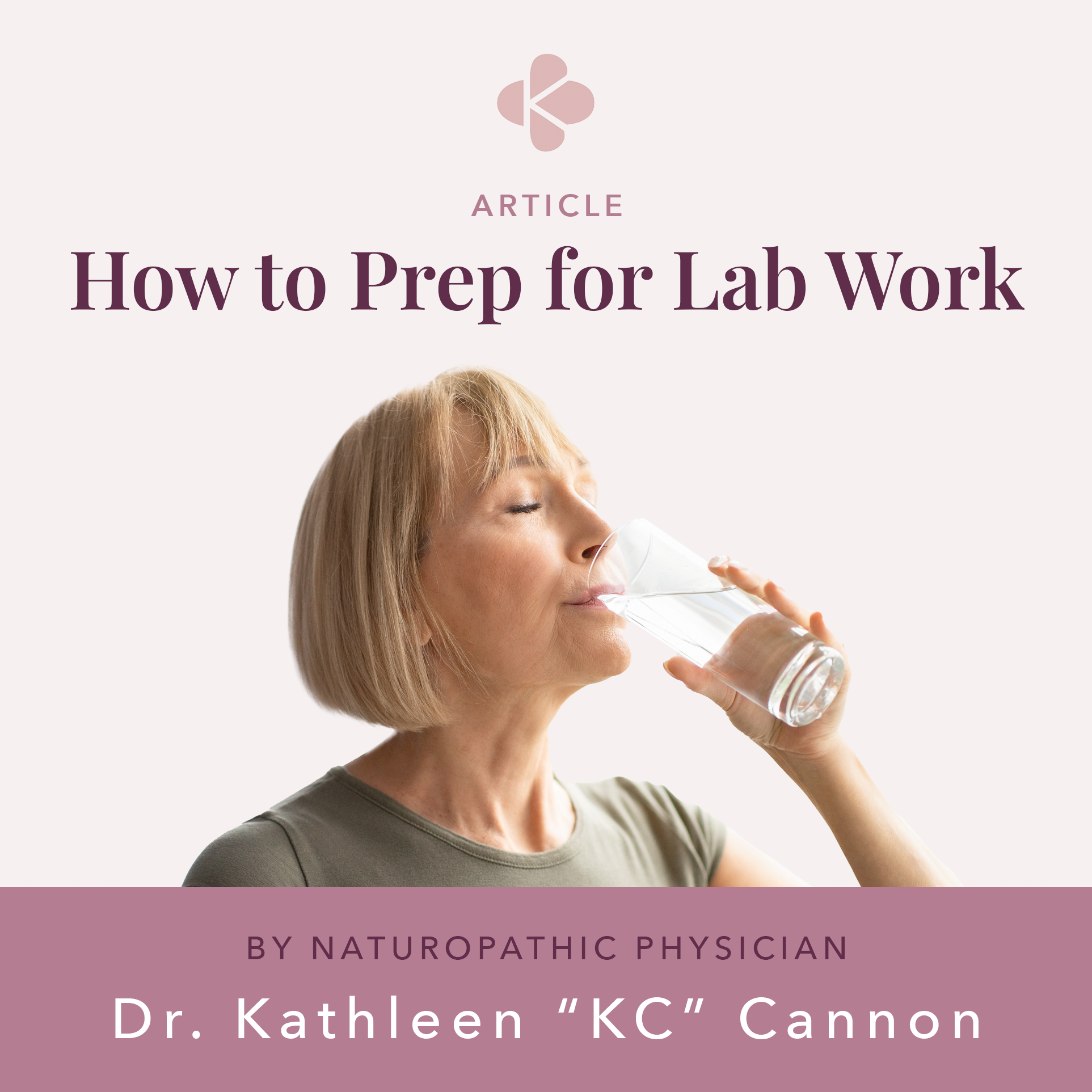How to Prep for Lab Work: 8 Quick Tips
Lab work can provide incredible insight into what’s happening in your body and where you may need some extra support.
To make sure you get the most accurate and usable results, how you prepare for lab work actually plays an important role. Also, by minimizing external variables, you can hopefully avoid needing to repeat any labs.
This isn’t hard - there are simple, easy things you can do to set yourself up for lab work success.
Here are 8 simple tips for your next trip to the lab:
#1: Follow your doctor’s instructions.
Your doctor may give you specific notes on how to prep - read these carefully.
#2: Ask for clarification.
If you’re not sure about any preparation required, call your doctor’s office and ask. It’s better to be sure than to guess.
#3: Skip your supplements, as indicated.
This will depend on the supplements you’re taking and what’s being tested.
Generally, you’ll want to skip vitamins and minerals, including electrolytes, for at least 24 hours prior to the lab work.
If you receive vitamin injections or IVs, that can affect the test results if done too closely together.
Ask your doctor for specifics on what to skip/timing.
#4: Pay attention to fasting requirements.
Most blood work requires overnight fasting for accurate measurements. This is usually clear in the instructions, but ask if you’re unsure.
Fasting means 12+ hours without nutrient intake.
A good rule of thumb is to do an overnight fast unless your doctor specifically tells you not to before lab work.
#5: Hydrate.
Drink water before and after your lab work. Ensuring your body is well-hydrated helps with the blood draw, but don’t drink significantly more than usual. Staying hydrated can also help if you need to provide a urine sample.
#6: Do a “clean catch” for urine samples.
This helps ensure your urine sample isn’t contaminated as it travels out of your body and into the cup. The lab ideally provides instructions on this for you, but it’s often skipped.
Basically, you’ll want to use lab-provided wipes once over the area your urine comes out (don’t rub back and forth as that can spread microbes around - one wipe front to back is good). Then, urinate into the toilet for a second before collecting in the cup.
Urine samples can be easily contaminated, so the clean catch helps your doctor know if there is something more going on.
#7: Support circulation, if needed.
If you tend to have slower-moving blood that takes longer to draw, the phlebotomist can use other strategies to help. These may include squeezing a stress ball or adjusting your position.
Prior to a blood draw, you can also try to get your circulation moving more by walking and swinging your arms, doing finger clenches/wiggles or using your own stress ball.
#8: Minimize other variables.
Go for lab work on a day that follows several typical days for you to ensure unusual food/drink/activities aren’t playing a role.
For example, if you just celebrated your cousin’s bachelorette with excess alcohol and unhealthy foods that are out of the norm for you, if you just ran a half marathon last weekend, or if you had a long flight in the past couple days, these are things that can impact your physiological function and you’ll want to allow your body to regulate itself back to baseline. It may make sense to wait several days to a week to do your lab work, where needed - check with your doctor.
Bonus + also important:
Confirm a cost estimate with the lab when you check in, prior to any testing being done. The lab bills your insurance for the testing, so you’ll want to make sure they have your insurance info correctly in their system and can give you a ballpark idea of any costs, based on your specific plan.
The bottom line: if you have any questions or concerns about lab work prep, ask your doctor.
Interested in how comprehensive and functional lab work can improve your health? Schedule an exploratory call to learn more.
This blog and website do not provide medical advice. It is intended for general informational purposes only and does not address individual circumstances. It is not a substitute for professional medical advice, diagnosis or treatment and should not be relied on to make decisions about your health. Always check with your own healthcare provider before taking a new supplement and before making any significant diet, lifestyle, exercise or other changes. Never ignore professional medical advice in seeking treatment because of something you have read on this site. If you think you may have a medical emergency, immediately call your doctor or dial 911.

